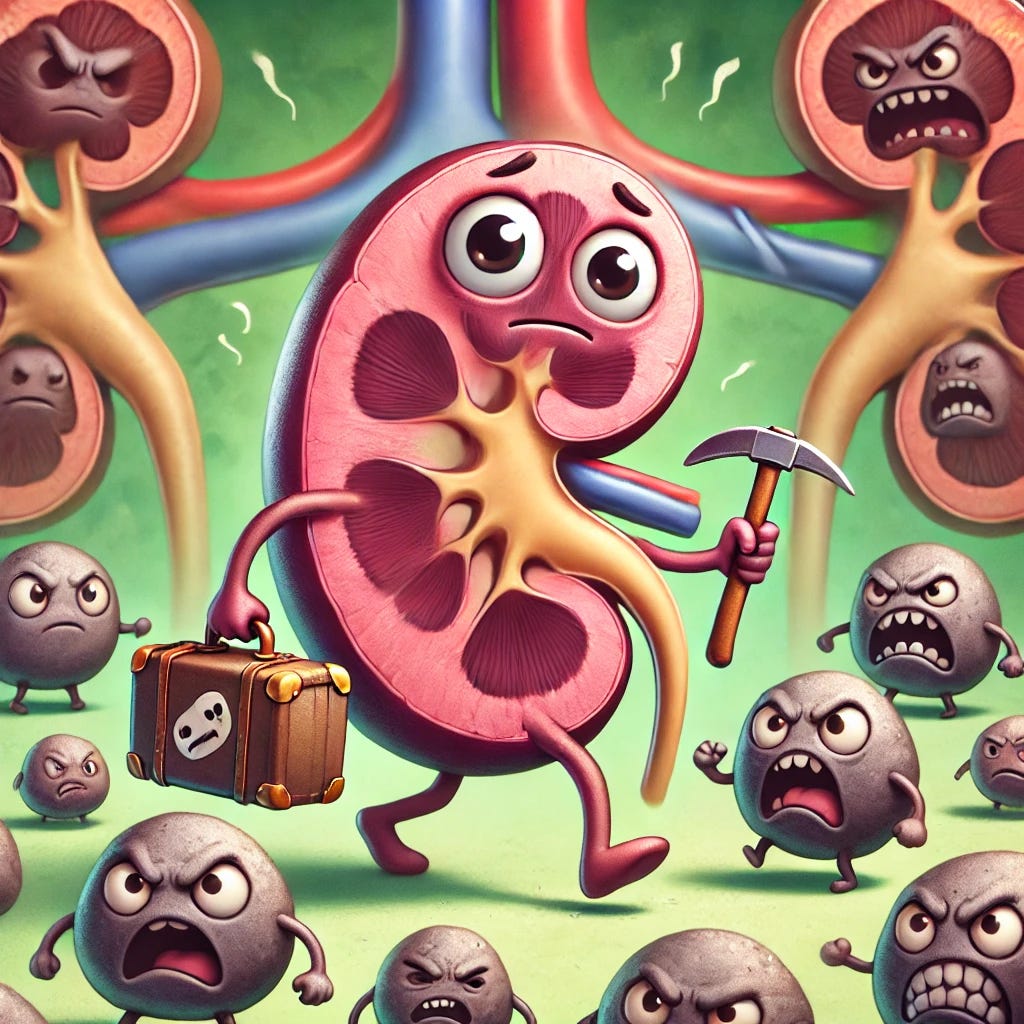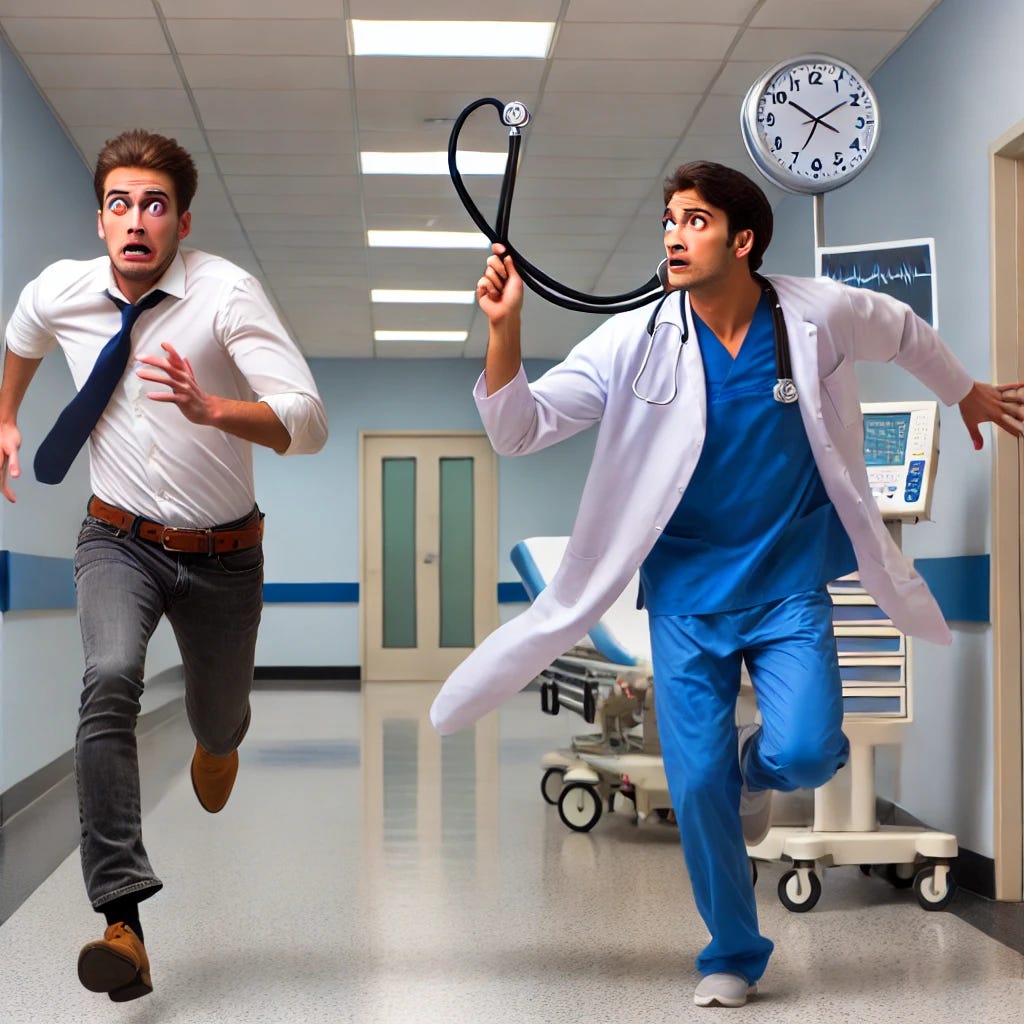June Urology Questions Answered
Do you have a question for our urologists?
Here are some questions from our members from June.
We launched a store!
Existing subscribers (Thank you!) get $10 in store credit.
Members Questions:
Question 1: If I don’t want to take an ED pill, what’s my best bet in terms of supplements to combat intimacy issues if I’m in my 50’s?
Dr. Gupta: “Here are a few over-the-counter (OTC) supplement products available in the USA that contain the ingredients I mentioned earlier:
1. Virectin: This product contains a blend of ingredients, including L-arginine, ginseng, and maca root, which may help improve erectile function and libido.
2. Ageless Male Max: This supplement includes a combination of ingredients like L-arginine, ginseng, and yohimbe extract, which may support sexual health and performance.
3. GNC Men's ArginMax: This product contains L-arginine, ginseng, and other vitamins and minerals that may help enhance sexual function and overall wellness.
4. Nugenix Total-T: This supplement includes a blend of ingredients like L-citrulline (which is converted to L-arginine in the body), ginseng, and zinc, which may support testosterone levels and sexual function.
5. Pure Encapsulations DHEA: This is a simple DHEA supplement from a reputable brand known for high-quality, hypoallergenic products.
When considering these or any other OTC supplements, keep the following in mind:
1. Supplements are not regulated by the FDA in the same way as medications, so quality and purity can vary between brands. Look for products from reputable companies with third-party testing.
2. As with any supplement, there is always a risk of side effects or interactions with medications. It's essential to consult with a healthcare provider before starting any new supplement regimen.
3. Results may vary from person to person, and no supplement can guarantee specific results. It may take time and experimentation to find the right product or combination of products that work best for you.
4. While supplements can be helpful for some men, they are not a substitute for addressing underlying health issues or making healthy lifestyle changes. A comprehensive approach to sexual health is always best.”
Question 2: What can I do to prevent kidney stones?
Answer: “Absolutely! I recommend several steps to help prevent kidney stones and keep your kidneys healthy. First and foremost, staying well-hydrated is crucial. Drinking plenty of water throughout the day keeps your urine diluted, preventing minerals from crystallizing and forming stones. It's also important to watch your salt intake, as high levels can lead to calcium buildup in the urine, increasing stone formation risk.
Additionally, moderating intake of oxalate-rich foods like spinach, nuts, and tea can help reduce the risk of calcium oxalate stones. Balancing your consumption of animal proteins such as red meat and seafood is beneficial, as excessive intake can raise uric acid levels, contributing to uric acid stone formation. Contrary to common belief, ensuring adequate calcium intake from dietary sources rather than supplements can actually help prevent oxalate absorption, further lowering the risk of stones.
Maintaining a healthy weight through a balanced diet and regular exercise is also important, as obesity can increase the likelihood of kidney stones. Lastly, if you have a history of kidney stones or other risk factors, it's essential to consult with a healthcare provider. They can provide personalized recommendations, including dietary adjustments or medications, to effectively manage your kidney health and prevent stone recurrence. Taking these proactive steps can significantly reduce your risk of kidney stones and promote lifelong kidney wellness.”
Question 3: What are the risks and benefits of a vasectomy?
Answer: “A vasectomy offers several benefits: it's highly effective, with success rates exceeding 99%, providing long-term contraception without altering hormone levels or sexual function. It's a quick outpatient procedure typically performed under local anesthesia, allowing for a speedy recovery with minimal discomfort. Unlike other forms of birth control, once it's done, there's no need for ongoing maintenance or remembering to take contraceptives.
However, like any surgery, vasectomy does carry some risks. These include a small chance of bleeding, infection, or reaction to anesthesia, though these complications are rare. There's also a potential for chronic testicular pain in a very small percentage of cases post-surgery. It's important for patients to understand that vasectomy isn't immediately effective; additional contraception is necessary until a follow-up test confirms no sperm in the semen. While the procedure can sometimes be reversed, it's complex and success isn't guaranteed.
Before deciding, it's crucial to have an open discussion with a urologist to weigh these factors based on individual health and personal considerations. This ensures making an informed decision that aligns with long-term family planning goals and overall well-being.”
Question 4: How often should I get screened for testicular cancer?
Answer: “Regular screening for testicular cancer is important for early detection and treatment. I recommend that men perform monthly self-examinations of their testicles. This involves gently feeling each testicle for any unusual lumps, swelling, or changes in size or texture. If you notice any abnormalities during self-examination, such as a painless lump or swelling, it's essential to promptly schedule an appointment with your healthcare provider for further evaluation. Early detection through self-examination can significantly increase the chances of successful treatment outcomes, as testicular cancer tends to respond well to treatment when detected early.
In addition to self-examination, I advise men to have a professional clinical exam by a healthcare provider during routine physical exams. This typically includes a thorough examination of the testicles to check for any signs of abnormalities. For most men, an annual physical exam with a healthcare provider is sufficient to monitor testicular health and screen for any potential issues. During this exam, your healthcare provider can provide guidance on proper self-examination techniques and answer any questions you may have about testicular health and cancer risk factors.
It's important to note that while testicular cancer is relatively rare compared to other cancers, it can occur at any age, with a higher incidence among younger men. Factors such as family history of testicular cancer, prior history of testicular cancer, or certain genetic conditions may increase your risk. Being proactive about regular self-examination and clinical exams can help ensure early detection and timely treatment if testicular cancer does develop. If you have concerns about your risk factors or need guidance on self-examination techniques, discussing them with your healthcare provider is crucial for maintaining optimal testicular health.
Question 5: What is the recovery like after bladder or prostate surgery?
Answer: “Recovery after bladder or prostate surgery can vary depending on the type of procedure performed and individual health factors. As a urologist, I typically discuss general expectations with patients undergoing these surgeries.
For bladder surgery, such as a cystectomy (removal of part or all of the bladder), recovery often involves a hospital stay of several days to monitor healing and manage pain. After discharge, patients may experience discomfort, fatigue, and temporary changes in urinary function. It's common to have a urinary catheter initially to help drain urine and allow the bladder to heal properly. Over time, as healing progresses, patients gradually resume normal activities and bladder function improves. Follow-up appointments with the urologist are essential to monitor recovery and adjust treatment as needed.
Prostate surgery, including procedures like a prostatectomy (partial or complete removal of the prostate gland), can also involve a hospital stay and initial recovery period. Patients may experience urinary issues such as temporary incontinence or difficulty urinating as the body adjusts post-surgery. Pain and discomfort are managed with medications, and gradual improvement in urinary function typically occurs over several weeks to months. Some procedures, like transurethral resection of the prostate (TURP), may allow for quicker recovery and shorter hospital stays compared to open prostate surgeries.
Open communication with the healthcare team is essential during recovery from bladder and prostate surgeries, as they offer guidance on post-operative care, medications, and physical activity to aid healing and reduce complications, facilitating a return to normal function and daily activities.”
___
MedTech team or Urologist? Email us at MD@Penis.com with partnership proposals.
Send this Substack to your friends!






